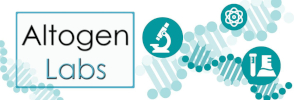Altogen Labs validated Colon Cancer Xenograft animal models:
COLO205, CT-26, MC38, SW-620, LS-174T, WiDr, SW480, HT-29, RKO, L0Vo, HCT116, DLD-1, KM-12, HCT-15
Colon Cancer Xenograft Models: Subcutaneous, Orthotopic, And Metastatic ![]()
Altogen Labs offers a comprehensive and scientifically validated panel of colon cancer xenograft models to support preclinical drug development across subcutaneous, orthotopic, and metastatic platforms. These models are established from a diverse array of human and murine colorectal cancer cell lines, encompassing both early- and late-stage phenotypes, variable differentiation status, and molecular heterogeneity reflective of clinical disease. The availability of multiple xenograft systems enables investigators to select models based on specific experimental objectives, including assessments of tumor growth kinetics, metastatic dissemination, therapeutic response, and resistance mechanisms.
In-house validated xenograft models:
CT26 Allograft Model: Download ![]()
COLO-205 Xenograft Model: Subcutaneous And Orthotopic Tumor Model: ![]()
DLD1 Colon Cancer Xenograft Model: Download ![]()
HCT-116 Orthotopic And Metastatic Xenograft Model: Download ![]()
HT-29 Colorectal Cancer Xenograft Model: Download ![]()
KM12 Xenograft Model: Download ![]()
LS174 Colorectal Cancer Xenograft Model: Download ![]()
LoVo Colon Cancer Subcutaneous And Metastatic Xenograft Model ![]()
HCT15 Colon Cancer Subcutaneous and Orthotopic Model: Download ![]()
RKO Colon Cancer CRC Orthotopic And Subcutaneous Xenograft Model: Download ![]()
SW480 Colon Cancer CRC Subcutaneous, Orthotopic And Metastatic Xenograft Models ![]()
SW620 Colon Cancer CRC Subcutaneous, Orthotopic And Metastatic Xenograft Models ![]()
WiDr Subcutaneous and Orthotopic Xenograft Models: Download ![]()
Selecting colon cancer xenograft model:
Colorectal cancer remains a leading cause of cancer-related morbidity and mortality worldwide, with adenocarcinomas representing the predominant histological subtype. The progression of this malignancy is closely tied to a sequence of genetic alterations, including mutations in APC, TP53, KRAS, and SMAD genes, as well as dysregulation of the Wnt/β-catenin, PI3K/AKT, and TGF-β pathways. Altogen Labs provides preclinical models that capture this complexity, enabling translational studies that mirror the biological behavior of human colorectal tumors. For example, the HCT116 cell line, harboring a KRAS mutation, displays consistent tumorigenicity in subcutaneous models and demonstrates spontaneous metastasis in vivo, making it ideal for testing inhibitors targeting RAS-driven oncogenesis.
The DLD-1 cell line, with mutated TP53 and truncated APC protein expression, presents a moderately differentiated phenotype and is widely utilized for investigating mechanisms of chemoresistance and combinatorial drug regimens. Similarly, HT-29 cells are frequently used in xenograft studies due to their overexpression of mutant p53 and sensitivity to 5-fluorouracil and oxaliplatin, making them particularly suitable for evaluating chemotherapeutic agents targeting DNA synthesis and repair. The SW480 and SW620 cell lines provide a unique model system for studying cancer progression, as SW480 originates from a primary tumor while SW620 is derived from a metastatic lesion in the same patient. This pairing facilitates comparative investigations of metastatic potential and molecular adaptations associated with disease dissemination.
Altogen Labs also offers xenograft models derived from LS-174T and WiDr cell lines, both of which express high levels of carcinoembryonic antigen (CEA), a clinically relevant biomarker. LS-174T xenografts are notable for their robust growth and production of mucin and inflammatory cytokines, including IL-6 and IL-10, making them advantageous for evaluating immunomodulatory therapies. In contrast, WiDr cells, characterized by EGFR and CSAp expression, are suitable for testing receptor-targeted agents. The LoVo cell line, isolated from a metastatic supraclavicular lesion, retains well-differentiated intestinal morphology and high expression of oncogenes including K-RAS and C-MYC, and serves as a model for evaluating metastatic progression and cell-cell adhesion dynamics.
The RKO cell line presents a poorly differentiated phenotype and wild-type p53 status, offering a contrasting model for studying therapeutic responses independent of TP53 mutation. RKO cells express high levels of u-PAR, which is implicated in matrix degradation and tumor invasiveness. KM-12 xenografts are commonly employed in studies investigating therapeutic resistance, particularly to oxaliplatin, and in evaluating sensitization strategies using irinotecan or monoclonal antibodies such as cetuximab. COLO205 cells, which lack CSAp expression and possess keratin markers, form well-circumscribed tumors with predictable kinetics and are often used in studies assessing tumor microenvironment modulation.
Murine-derived CT26 and MC38 colon cancer models expand Altogen Labs’ capabilities into syngeneic systems, allowing for immunocompetent studies. The CT26 model, derived from a chemically induced BALB/c carcinoma, exhibits aggressive tumor growth and serves as a platform for evaluating immune checkpoint inhibitors, adoptive T cell therapy, and tumor vaccination strategies. MC38, derived from a C57BL/6 adenocarcinoma, overexpresses CEA and is employed in studies of insulin signaling and tumor metabolism. These immunocompetent models are critical for assessing drug responses that are modulated by host immunity.
Altogen Labs provides tailored study design and execution, encompassing xenotransplantation protocol development, cell line validation, host strain selection, and longitudinal monitoring of tumor burden. Available host strains include BALB/c nude, NOD/SCID, NSG, and Swiss nude mice, with each offering a specific immunological profile suited for particular experimental endpoints. NSG mice, for instance, are ideal for long-term human xenograft studies due to their profound immunodeficiency, while NOD/SCID mice provide a balance of high engraftment efficiency and short study duration.
Colon cancer xenograft studies conducted at Altogen Labs are performed in GLP-compliant, IACUC-regulated facilities by experienced personnel. Available procedures include subcutaneous implantation for standardized tumor volume assessment, orthotopic transplantation for recapitulating primary tumor location and metastatic progression, and bioluminescent imaging for tracking tumor growth using luciferase-tagged variants. Post-experiment analyses such as histopathology, serum biomarker evaluation, and gene expression profiling provide comprehensive endpoints for therapeutic efficacy studies.
The depth of Altogen’s xenograft portfolio facilitates targeted investigations across diverse molecular subtypes of colorectal cancer. Whether assessing response to fluoropyrimidines, platinum-based therapies, EGFR inhibitors, or immune-based therapeutics, the strategic selection of xenograft models ensures relevance to human disease and supports robust data generation. Altogen Labs remains committed to providing high-fidelity, reproducible preclinical platforms that accelerate the translation of innovative treatments for colorectal malignancies.
